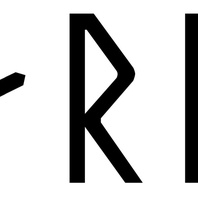
Viking Names
Gerd
The name Gerðr was found in Iceland in the tenth century, but only possibly found in Norway in place-names. It is also found in one Danish place-name. It is is the first element in the place-name Garriston, North Yorkshire and in Getheston, a field name, in Monk Bretton, West Yorkshire. Gerðr is from the Primitive Scandinavian garðiōʀ. Perhaps it is the female equivalent of the Old Norse male personal name Garðr from Old Norse garðr ‘yard, enclosure’, but used in the older sense of ‘protection’. Gerðr occasionally appears as a form of the male personal name, Giarðarr. Many female names, such as Þorgerðr are formed with -gerðr as the second element. Gerðr also appears in Old Norse mythology as the name of the giantess with whom the god Freyr falls in love.
Read More

Viking Names
Elli
Elli is a mythological name from Old Norse elli ‘old age’. In Snorri Sturluson’s Edda, Thor battles with Elli who here is a personification of old age in the guise of an old woman. Even the mighty Thor cannot defeat her! The name Elli may be found as an element in some West Yorkshire place-names, but it cannot actually be distinguished from the Old English male personal name Ælla or Ælli.
Read More
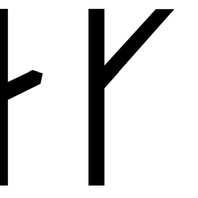
Viking Names
Ragni
Ragni is a short form of names in Ragn-, related to Old Norse regin, genitive plural ragna, ‘ruling powers, the gods’. The personal name element probably has the sense of ‘advice’, but it may indicate ‘the gods’, as it does in Ragnarök, the name of the apocalypse in Old Norse mythology. A few late instances of the personal name are recorded in West Scandinavia, it is recorded in several runic inscriptions in Sweden. Also, Ragni is the first element of the place-name Ragnall, Nottinghamshire.
Read More
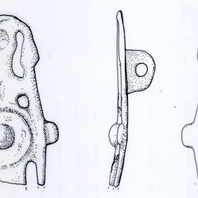
Viking Objects
Pendant (LEIC-C58A13)
This copper-alloy pendant depicts an individual holding a shield and a sword. Similar designs have been seen in pendants from southern Scandinavia which are generally identified as valkyries, though they could represent other mythological figures. The closest parallel in England is an example from Wickham Market, Suffolk. .
Read More
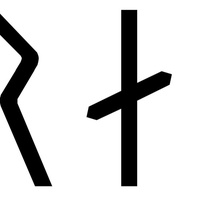
Viking Names
Grani
The male personal name Grani, or possibly Gráni, is the first element of the place-name Granby, Nottinghamshire. The name occurs sporadically in saga-literature and also appears on the rune-stone from Berezan’ in southern Ukraine, erected by visiting Swedes in the eleventh century. It is also the name of the horse of the legendary hero Sigurd the Serpent-Slayer. If the name, whether of the horse or as a male name, is Grani, then it is related to the Old Norse word grǫn, referring to the ‘upper lip’ or ‘moustache’, and can be compared to other original bynames like Skeggi from skegg ‘beard’. Alternatively, it might be related to the adjective grár ‘grey’ or verb grána ‘to grow grey’, and would similarly have originally been a descriptive byname. In Granby, a document from c. 1200 refers to Granehou, a mound (Old Norse haugr) possibly named after the same man who gave his name to the village.
Read More
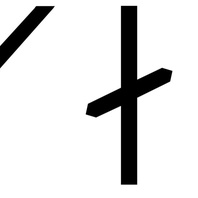
Viking Names
Skalli
Skalli an original byname meaning ‘bald-head’. It is recorded in Western Scandinavian mythology as the name of a giant, it is fairly common as a byname in Norway and Iceland. A few instances are recorded in runic inscriptions in Sweden and in Danish place-names. Skalli is the first element in Scawby, Lincolnshire, as well in several other place-names in Lincolnshire and Yorkshire
Read More

Viking Names
Hild
Hildr is a monothematic name derived from Old Norse hildr ‘battle’, and in Old Norse mythology it was the name of a valkyrie. It is common across Scandinavia and also a common second element in a number of female personal names such as the very common Gunnhildr, Ragnhildr, etc. The name is attested as the first element in Hinderskelfe, North Yorkshire, and in Hinderwell, North Yorkshire. Hinderwell may originally have contained the name of the English St Hild of Streanæshalch (Whitby), but preserved forms of the place-name show Scandinavian grammar in the use of the genitive singular Hildar. This form is also seen in a lost field-name in Brocklesby, Lincolnshire.
Read More
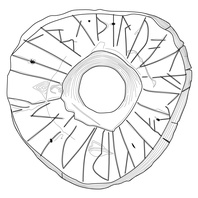
Viking Designs
Drawing of the Saltfleetby Spindle Whorl
Drawing of a lead alloy spindle whorl from Saltfleetby, Lincolnshire showing part of the runic inscription. For further information, see the entry for the original item.
Read More
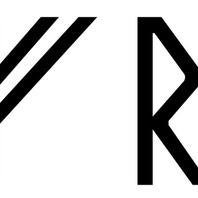
Viking Names
Alfrun
Alfrún was recorded in West Scandinavia (Norway and Iceland) as a mythological name. It is an Old Norse compound formed from the elements Alf- ‘elf’ and –rún ‘confidante’. It has been suggested that when used in a personal name it has the sense of ‘secret, wisdom’, associated with rúnar ‘runes’. There may be one attestation of Alfrún in a medieval church document from Lincolnshire. However, the form may alternatively represent the Old English female personal name, Ælfrūn.
Read More

Viking Names
Grim
The Old Norse male name Grímr is common across the Scandinavian world, including the Viking diaspora. It is very common in English place-names, though some of these might rather represent an Old English mythological name associated with Woden, and there are other possibilities. For this reason, not all the hybrid names traditionally referred to as ‘Grimston hybrids’ necessarily have an Old Norse element and it is better to refer to them as Toton-hybrids. However, where the name is compounded with an Old Norse element such as -by (as in Grimsby), it is likely that it represents the Old Norse personal name. In Old Norse, Grímr is related to the word gríma ‘mask’ and mythological texts relate that is one of the god Óðinn’s by-names, deriving from his penchant for travelling about in disguise. It is also a common element in compound personal names, such as Þorgrímr. The father of the eponymous hero of Egils saga was called Skalla-Grímr ‘Bald-Grim’.
Read More

Viking Names
Miningsby
Miningsby, in the Bolingbroke Wapentake of Lincolnshire, is a very difficult name with a great variety of spellings. The best suggestion for the first element is the Old Norse male personal name Miðjungr, but this name is only known as that of a mythical giant, recorded in an early skaldic poem cited in Snorri Sturluson’s Edda, or as an appellative for ‘giant’ in skaldic poetry more generally. The second element is Old Norse by ‘a farmstead, a village’.
